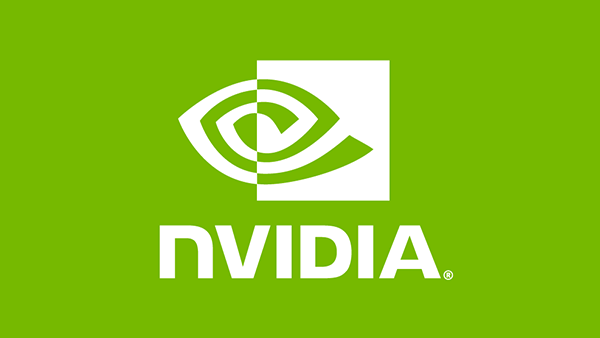NVIDIA’s Quantum Day at GTC 2025 to Highlight Latest Advances, Future Potential of Quantum Computing

Insider Brief
- NVIDIA’s inaugural Quantum Day at GTC 2025 will bring together industry leaders and researchers to discuss quantum computing’s present advances and future potential.
- The event will feature NVIDIA CEO Jensen Huang alongside executives from top quantum firms like Quantinuum, IonQ, and PsiQuantum, focusing on topics such as error correction, hardware innovation, and hybrid quantum-classical systems.
- Hands-on training and educational sessions will equip developers and researchers with tools to advance quantum applications, supporting a growing ecosystem for practical quantum computing.
NVIDIA has announced its inaugural Quantum Day at GTC 2025, set for March 20, where industry leaders and researchers will discuss the future of quantum computing and its implications, according to NVIDIA’s blog.
The move puts quantum computing at the center of what has become one of the most anticipated events in the tech world. According to the NVIDIA blog, the event will feature NVIDIA founder and CEO Jensen Huang alongside executives from leading quantum firms, including Quantinuum, Atom Computing, IonQ, D-Wave, and PsiQuantum. The discussions aim to explore both the current state of quantum technology and its long-term potential.
The event will also be a chance for quantum leaders to discuss the progress, near-term commercialization opportunities and future roadmaps with the leaders of NVIDIA and Jensen, who recently estimated that “very useful” quantum computers were decades away.
The NVIDIA blog points out that quantum computers hold the promise of solving problems that are intractable for today’s most powerful supercomputers. These include breakthroughs in drug discovery, where quantum algorithms could simulate molecular interactions with unprecedented precision, and financial forecasting, where advanced models could analyze vast datasets for better market predictions.
“This new focus area brings together leading experts for a comprehensive and balanced perspective on what businesses should expect from quantum computing in the coming decades — mapping the path toward useful quantum applications,” the NVIDIA team writes.
Focus on Present and Future Progress
While the timeline for the realization of universal fault-tolerant quantum computing is uncertain, NVIDIA’s Quantum Day emphasizes the significant progress being made now. As the blog mentions, innovations in quantum hardware, error correction, and algorithm development are reshaping expectations for many about what quantum systems can achieve.
Error correction, a critical piece of the puzzle to make quantum systems practical, will be one key area of focus of the event. Current quantum computers are noisy and prone to errors due to the fragile nature of quantum states. Innovations in this field aim to make computations more reliable, bringing the technology closer to solving real-world problems.
Another topic at the event will be the state of quantum hardware. Companies are advancing different approaches to building quantum processors, including using trapped ions, neutral atoms and superconducting circuits. These technologies offer different paths to scalability, a critical factor in achieving quantum advantage — the point where quantum computers outperform classical systems for specific tasks.
NVIDIA’s Role in Quantum Computing
NVIDIA’s own involvement in quantum computing has grown significantly, according to the post. The company’s contributions lie in leveraging its expertise in accelerated computing and artificial intelligence to support quantum development.
As the NVIDIA blog notes, a special address at Quantum Day will unveil the latest advances from NVIDIA aimed at “shortening the timeline to useful applications.”
Because NVIDIA is considered a leading firm in hybrid quantum-classical systems for the quantum industry, the event likely includes updates on hybrid capabilities. Hybrid systems combine quantum processors with classical computing power to tackle problems that neither system could solve alone. Matching and combining the unique powers of both quantum and classical systems is seen as a pragmatic way to harness quantum capabilities in the near term while researchers work on scaling up standalone quantum devices.
NVIDIA is also working closely with its partners in the quantum space. A developer day session at Quantum Day will outline how companies are collaborating with NVIDIA to integrate quantum technologies into their workflows. This includes the use of advanced simulation tools to design and test quantum hardware and algorithms in virtual environments before they are deployed in physical systems.
Educational Opportunities for Attendees
In addition to high-level discussions, Quantum Day will offer practical sessions for attendees. According to the NVIDIA blog, hands-on training will provide developers and researchers with access to the latest tools for exploring and building quantum applications. This focus on education underscores the importance of preparing a skilled workforce to support the growing quantum ecosystem.
For NVIDIA and the broader quantum community, Quantum Day represents a milestone in building a shared vision for the future. As the NVIDIA blog notes, it will serve as “the destination for leaders and experts seeking to chart a course into the future of quantum computing.”
GTC, considered one of the year’s premier AI events, will also feature a keynote by NVIDIA CEO Jensen Huang, 500 different sessions, 300+ exhibits, technical hands-on training and t unique networking events.
The full list of quantum companies expected to share the stage with Huang include: Alice & Bob, Atom Computing, D-Wave, Infleqtion, IonQ, Pasqal, PsiQuantum, Quantinuum, Quantum Circuits, QuEra Computing. Rigetti and SEEQC.
You can register for GTC here.
